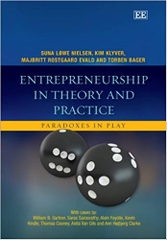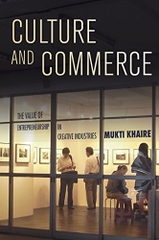-
-
-
Tổng tiền thanh toán:
-
-
Thông tin
-
Tìm sách theo yêu cầu
Now available in paperback—with a new preface and interview with Jessica Livingston about Y Combinator!
Founders at Work: Stories of Startups’ Early Days is a collection of interviews with founders of famous technology companies about what happened in the very earliest days. These people are celebrities now. What was it like when they were just a couple friends with an idea? Founders like Steve Wozniak (Apple), Caterina Fake (Flickr), Mitch Kapor (Lotus), Max Levchin (PayPal), and Sabeer Bhatia (Hotmail) tell you in their own words about their surprising and often very funny discoveries as they learned how to build a company.
Where did they get the ideas that made them rich? How did they convince investors to back them? What went wrong, and how did they recover?
Nearly all technical people have thought of one day starting or working for a startup. For them, this book is the closest you can come to being a fly on the wall at a successful startup, to learn how it's done.
But ultimately these interviews are required reading for anyone who wants to understand business, because startups are business reduced to its essence. The reason their founders become rich is that startups do what businesses do—create value—more intensively than almost any other part of the economy. How? What are the secrets that make successful startups so insanely productive? Read this book, and let the founders themselves tell you.
Product Details
- Paperback: 488 pages
- Publisher: Apress; 1 edition (September 18, 2008)
- Language: English
- ISBN-10: 1430210788
- ISBN-13: 978-1430210788
- Product Dimensions: 9 x 6 x 1.2 inches
- Shipping Weight: 1.5 pounds (View shipping rates and policies)
- Average Customer Review: 4.4 out of 5 stars See all reviews (143 customer reviews)
- Amazon Best Sellers Rank: #64,787 in Books (See Top 100 in Books)
Most Helpful Customer Reviews
113 of 115 people found the following review helpfulBy K. Sampanthar on June 3, 2007
Format: Hardcover Verified Purchase
The Summary
Jessica Livingston has written an amazing book. If you want to read the stories behind some of the most well known software companies in the last 30 years, you will find it in this book. But Livingston hasn't just covered the usual suspects (Google, Microsoft), she has included a diverse collection from Steve Wozniak (Apple) to David Heinemeier Hansson (37 Signals), Dan Bricklin (Visicalc) to Blake Ross (Firefox). It covers a lot of ground from the early 80's software boom to the Web 2.0 starts ups. But there is more than just stories about starting companies, there is real advice from the frontline trenches of software start-ups. Keep your post-it notes and highlighter handy, if you are like me you will be annotating and highlighting a lot!
The Audience
If you have ever considered a start-up you should definitely read this book. It's like picking the brains of some very experienced entrepreneurs. Anybody that has already tried their hand at start-ups will recognize the value of this book. Most will probably feel like I did, and wish that they had had this book before they started their first company. It could have saved me many painful lessons (both financially and personally). Reading these interviews is like having 32 mentors.
The Details
Like many people I am always a little skeptical of `success stories'. Just because someone did x, y and z, doesn't mean that I could follow these very steps and be as successful. Just because Aunt Ethel, who lived to be a 100, attributes her long life to drinking a glass of whisky every day, doesn't mean I can drink a glass of whisky every day and live to be a 100. Instead of a collection of fluffy `creation myth' stories written about software companies, Livingston has put a lot of thought into how she approached these interviews and has collected some real gems of insights from these entrepreneurs. She has uncovered a gold mine of valuable advice and information about starting a company. As you read these stories you start to see some patterns emerging. Some of these patterns I recognize from my own experiences, but others were new to me. Sometimes you see contradictory advice from different founders; one tells you, you need to focus on the technology and somebody else explains that it's more important to focus on business/market opportunity. There are definitely multiple paths to starting a company, but some advice is repeated story after story, and these seem to be universal truths.
The Ideas
Here are some of the universal truths that I culled from the interviews:
- Iterate through ideas, the first idea isn't always the best
- Business plans are important - but be prepared to change it many times
- You need to be naïve - "unencumbered by reality"
- Persistence makes all the difference
- Passion - you need to be really excited about what you are doing and think it's really important
- Understand and listen to your end users
The book is full of ideas and advice like this.
The Take-Aways
Overall, I can't say enough good things about this book. Obviously it's aimed at entrepreneurs, but I know there are going to be many people just interested in the stories behind their favorite companies or people. Personally I loved the interviews with Ray Ozzie, Joel Spolsky, Joe Kraus and Steve Wozniak. I was also fascinated by the stories behind companies like: 37 Signals, Six Apart, del.icio.us and Craigslist. I was even surprised by the story behind `Hot or Not', it's not as shallow as you might think.
Entrepreneurs -- wanna-be, new and experienced -- you NEED to read, think, digest and act on the advice in this book and your next/current entrepreneurial venture will go much smoother.
Kes Sampanthar
Inventor of ThinkCube
Jessica Livingston has written an amazing book. If you want to read the stories behind some of the most well known software companies in the last 30 years, you will find it in this book. But Livingston hasn't just covered the usual suspects (Google, Microsoft), she has included a diverse collection from Steve Wozniak (Apple) to David Heinemeier Hansson (37 Signals), Dan Bricklin (Visicalc) to Blake Ross (Firefox). It covers a lot of ground from the early 80's software boom to the Web 2.0 starts ups. But there is more than just stories about starting companies, there is real advice from the frontline trenches of software start-ups. Keep your post-it notes and highlighter handy, if you are like me you will be annotating and highlighting a lot!
The Audience
If you have ever considered a start-up you should definitely read this book. It's like picking the brains of some very experienced entrepreneurs. Anybody that has already tried their hand at start-ups will recognize the value of this book. Most will probably feel like I did, and wish that they had had this book before they started their first company. It could have saved me many painful lessons (both financially and personally). Reading these interviews is like having 32 mentors.
The Details
Like many people I am always a little skeptical of `success stories'. Just because someone did x, y and z, doesn't mean that I could follow these very steps and be as successful. Just because Aunt Ethel, who lived to be a 100, attributes her long life to drinking a glass of whisky every day, doesn't mean I can drink a glass of whisky every day and live to be a 100. Instead of a collection of fluffy `creation myth' stories written about software companies, Livingston has put a lot of thought into how she approached these interviews and has collected some real gems of insights from these entrepreneurs. She has uncovered a gold mine of valuable advice and information about starting a company. As you read these stories you start to see some patterns emerging. Some of these patterns I recognize from my own experiences, but others were new to me. Sometimes you see contradictory advice from different founders; one tells you, you need to focus on the technology and somebody else explains that it's more important to focus on business/market opportunity. There are definitely multiple paths to starting a company, but some advice is repeated story after story, and these seem to be universal truths.
The Ideas
Here are some of the universal truths that I culled from the interviews:
- Iterate through ideas, the first idea isn't always the best
- Business plans are important - but be prepared to change it many times
- You need to be naïve - "unencumbered by reality"
- Persistence makes all the difference
- Passion - you need to be really excited about what you are doing and think it's really important
- Understand and listen to your end users
The book is full of ideas and advice like this.
The Take-Aways
Overall, I can't say enough good things about this book. Obviously it's aimed at entrepreneurs, but I know there are going to be many people just interested in the stories behind their favorite companies or people. Personally I loved the interviews with Ray Ozzie, Joel Spolsky, Joe Kraus and Steve Wozniak. I was also fascinated by the stories behind companies like: 37 Signals, Six Apart, del.icio.us and Craigslist. I was even surprised by the story behind `Hot or Not', it's not as shallow as you might think.
Entrepreneurs -- wanna-be, new and experienced -- you NEED to read, think, digest and act on the advice in this book and your next/current entrepreneurial venture will go much smoother.
Kes Sampanthar
Inventor of ThinkCube
39 of 40 people found the following review helpfulBy Thomas Beck on February 19, 2007
Format: Hardcover
This is an absolute must read if you're job, your passion, or both (if you're lucky) has anything to do with creating technical innovation. "Founders at Work" is a wonderfully meander through the stories of successful company founders - across several decades. Far from focusing on just those who made it big during the first dot-com boom or those who are profiting from Web 2.0, Jessica also includes some of the true pioneers in the field. She recognizes that, not only do these industry veterans have valuable stories to convey but, since many of them are helping to steer companies and venture capital funds to this day, their advice is quite topical and current.
From the great introduction right through the final interview, this book is packed with great anecdotes, advice, and information and inspiration. Makes you wonder as to what the story is behind the story - how did Jessica get unfettered access to such a broad array of the founding fathers?
I've included some illustrative quotes from the book below. Give them a read and then go pick up this book. The printed copy is a bargain and the e-book version is a steal. It may turn out to be one of the best investments you ever make.
* "You guys are nuts. Throw out your business plan. Your customers--or potential customers - are telling you what your business should be. The business plan was only used to get you the money. Why don't you rewrite a business plan that is focused just on providing what your customers want?" - Q.T. Wiles advice to Charles Geschke (Cofounder, Adobe) on the real purpose of a business plan
* "There were some warning signs. Consider McKinsey, which holds itself out as one of the world's leading repositories of knowledge on how to manage a business. They say they'll never grow their company by more than 25 percent per year, because otherwise it's just too hard to transmit the corporate culture. So if you're growing faster than 25 percent a year, you have to ask yourself, `What do I know about management that McKinsey doesn't know?'" - Philip Greenspun (Cofounder, ArsDigita) on scaling corporate culture
* That [not improving core product quality] was probably the biggest mistake we made. And that's the advice I give everybody. All those little coupon schemes, this is what General Motors does. They figure out new rebate schemes because they forgot all about how to design cars people want to buy. But when you still remember how to make software people want, great, just improve it. - Joel Spolsky (Cofounder, Fog Creek Software)
* "I think some people slept; I know I didn't sleep at all." - Max Levchin (Cofounder, PayPal)
* "There were times when we were really broke before we had our angel investment, when only one guy who had children was getting paid." - Caterina Fake (Cofounder, Flickr)
With nearly 21 of the 32 interviewees having the term "Cofounder" in their titles, Joel Spolsky's advice seems perhaps to reflect best on what was critical to the success of these companies. "But because they never really take the leap and quit their job, they can give up their dream at any time. And 99.9 percent of them will actually give up their dream. If they take the leap, quit their job, go do it full-time--no matter how much it sucks--and convince one other person to do the same thing with them, they're going to have a much, much higher chance of actually getting somewhere."
- Link: http://www.amazon.com/Founders-Work-Stories-Startups-Early/dp/1430210788
From the great introduction right through the final interview, this book is packed with great anecdotes, advice, and information and inspiration. Makes you wonder as to what the story is behind the story - how did Jessica get unfettered access to such a broad array of the founding fathers?
I've included some illustrative quotes from the book below. Give them a read and then go pick up this book. The printed copy is a bargain and the e-book version is a steal. It may turn out to be one of the best investments you ever make.
* "You guys are nuts. Throw out your business plan. Your customers--or potential customers - are telling you what your business should be. The business plan was only used to get you the money. Why don't you rewrite a business plan that is focused just on providing what your customers want?" - Q.T. Wiles advice to Charles Geschke (Cofounder, Adobe) on the real purpose of a business plan
* "There were some warning signs. Consider McKinsey, which holds itself out as one of the world's leading repositories of knowledge on how to manage a business. They say they'll never grow their company by more than 25 percent per year, because otherwise it's just too hard to transmit the corporate culture. So if you're growing faster than 25 percent a year, you have to ask yourself, `What do I know about management that McKinsey doesn't know?'" - Philip Greenspun (Cofounder, ArsDigita) on scaling corporate culture
* That [not improving core product quality] was probably the biggest mistake we made. And that's the advice I give everybody. All those little coupon schemes, this is what General Motors does. They figure out new rebate schemes because they forgot all about how to design cars people want to buy. But when you still remember how to make software people want, great, just improve it. - Joel Spolsky (Cofounder, Fog Creek Software)
* "I think some people slept; I know I didn't sleep at all." - Max Levchin (Cofounder, PayPal)
* "There were times when we were really broke before we had our angel investment, when only one guy who had children was getting paid." - Caterina Fake (Cofounder, Flickr)
With nearly 21 of the 32 interviewees having the term "Cofounder" in their titles, Joel Spolsky's advice seems perhaps to reflect best on what was critical to the success of these companies. "But because they never really take the leap and quit their job, they can give up their dream at any time. And 99.9 percent of them will actually give up their dream. If they take the leap, quit their job, go do it full-time--no matter how much it sucks--and convince one other person to do the same thing with them, they're going to have a much, much higher chance of actually getting somewhere."
XEM THÊM TẠI AMAZON.COM
- Thông tin chi tiết
- Mục lục
- Đọc thử
- Đọc thử
- Đánh giá & bình luận của người mua
- Những cuốn sách cùng chủ đề hoặc có liên quan
Tại web chỉ có một phần nhỏ các đầu sách đang có nên nếu cần tìm sách gì các bạn có thể liên hệ trực tiếp với Thư viện qua Mail, Zalo, Fanpage nhé
Đăng ký nhận tin qua email
Hãy đăng ký ngay hôm nay để nhận được những tin tức cập nhật mới nhất về sản phẩm và các chương trình giảm giá, khuyến mại của chúng tôi.












